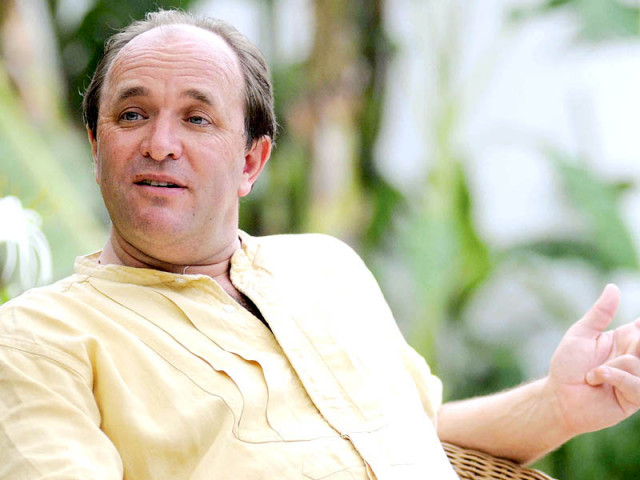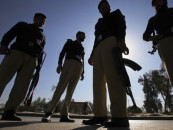The scent from Deccan gardens permeate popular imagination
Ali Akbar Husain talks about a heritage long forgotten.

They talked about the scent of roses, the chirping of sparrows and a lush garden in a small hotel room thick with branded perfume fragrance and the audience’s murmur at the Karachi Literature Festival.
Saturday marked the launch of Scent in the Islamic Garden by Ali Akbar Husain, an architect associated with the Indus Valley School of Art and Architecture. The book, which was published a decade ago, has been reprinted by the Oxford University Press.
Even though the session started 30 minutes late, the room was thronged by people eager to hear about historic Deccan gardens and courts.
“The book explores relations of cultural values and expression, and the horticulture of the Islamic gardens,” said Husain, apologising that the book is not a new work. But gripped by the details of plants and fragrances, the audience did not seem to mind.
Divided into six chapters, the book focuses on physical gardens, Islamic horticulture and medicines in the 17th and 18th century Deccan India. “My major focus is on the scent because most plants in the subcontinent are aromatic. In Islamic gardens, the scent is undeniably unnatural.” He said that most of the flowers bloom in the evening which is why there was a tradition of evening and moon gardens during those times.
Husain said he had to sift through 17th century literature in libraries of Indian Hyderabad. “The metaphors were difficult to unravel, but I sought help from a relative.”
A large chunk of his research came from poetry. A lot of them have also been translated and included in his book. He read out the translation of a painting in which birds were dressed up as locals of those times.
On the difference between Mughal and Deccan gardens, Husain said: “There was little archaeological evidence on Deccan gardens. Everyone knew about the Mughals, but not many are aware about the rich reservoirs of the Deccans.”
Delhi-based Scottish historian and writer William Dalrymple, present at the panel, said he came across Husain’s book while researching for his own. “I really admire Husain’s book. My own book White Mughals is inspired by it.”
While everyone is aware of the Mughal gardens, Husain writes about their Deccan counterparts, which have been forgotten about by everyone, Dalrymple said. “The Deccan courts and gardens seduce the reader.”
It is admirable for the writer to research and collect source material from the libraries in Hyderabad, even when the floods had washed away several of the documents.
When asked about the state of Hyderabad’s heritage by the nostalgic audience, Husain said: “Old buildings are no more there. In fact, there are no proper gardens. The few left are on the rooftops of mosques.”
Published in The Express Tribune, February 12th, 2012.



















COMMENTS
Comments are moderated and generally will be posted if they are on-topic and not abusive.
For more information, please see our Comments FAQ